Women in the Wilderness
In a society historically rife with oppression, for centuries women have been subject to abuse — sexual, physical, mental and verbal. They are told from the time they are born that they are simply tools for men and have no human rights other than those selectively granted to them. But things are changing…
Women in the Wilderness (WITW) is a docu-series featuring the women of Africa who have shattered social mores and are creating a new paradigm. Many believe these women have no fear. The truth is, they have many, but they don’t let their fears get in their way. Their desire to see more, do more and be more make them unstoppable. They are bold. They are brave. They are bad ass.
“some women fear the fire some women simply become it . . .” r.h. sin
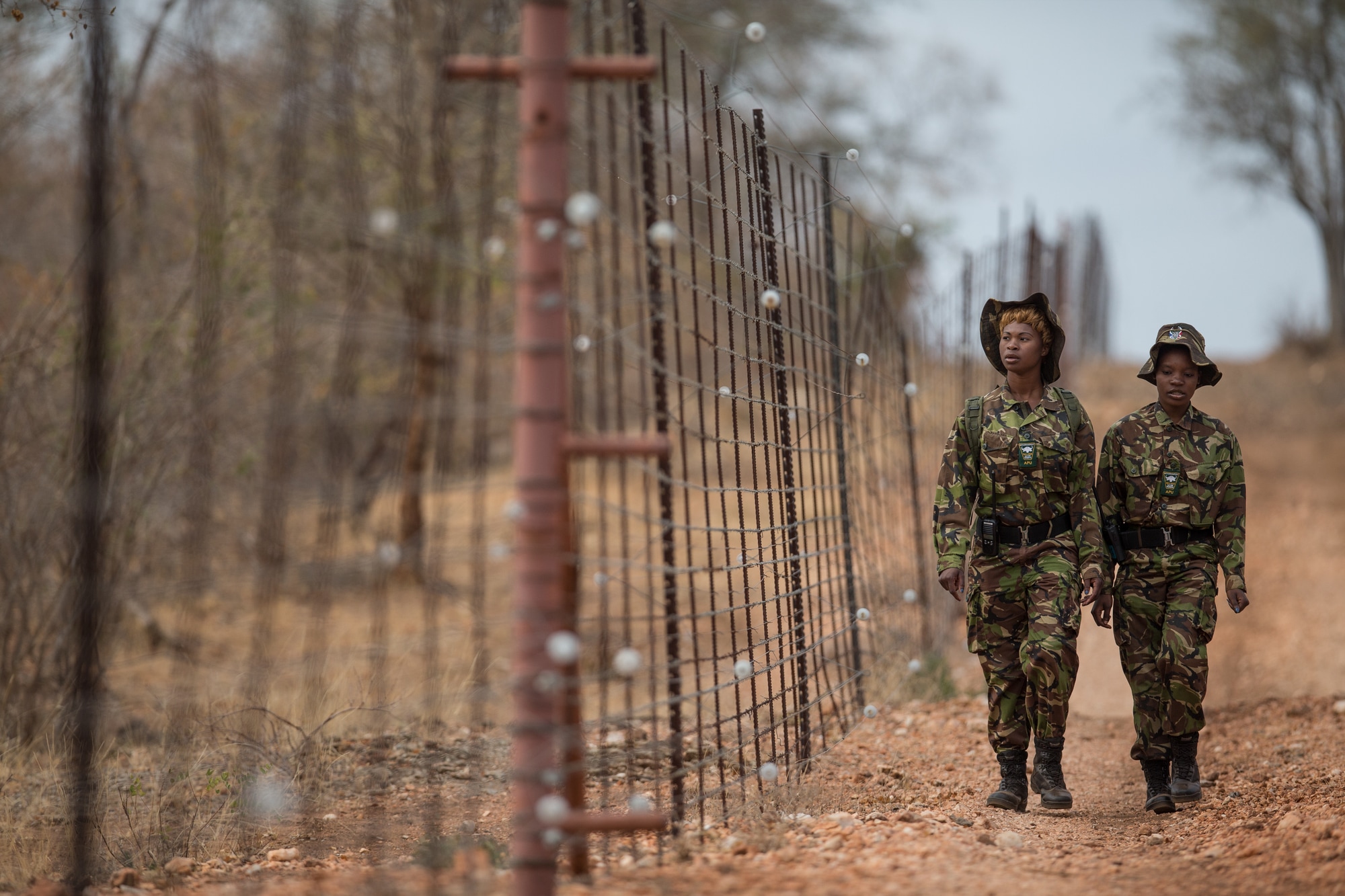
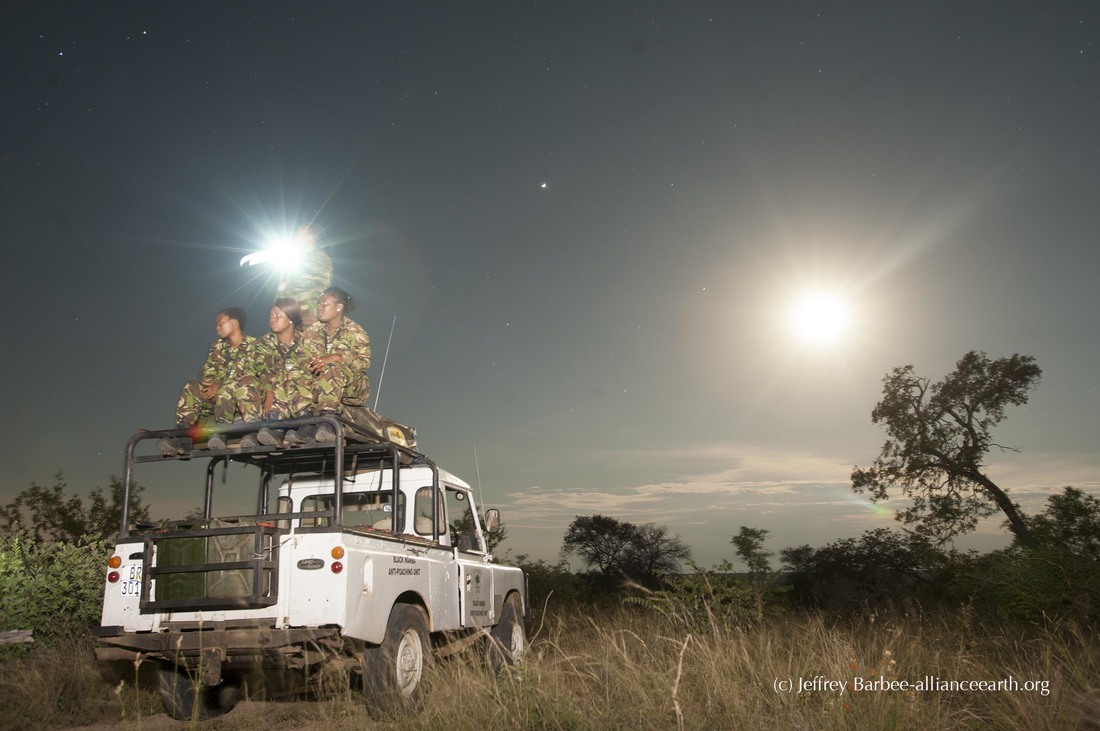
Meet the Women of the Black Mambas
The Black Mambas is the first unarmed, all-female anti-poaching unit in South Africa. They operate within Balule Nature Reserve, part of the Greater Kruger National Park, and work to the “broken window” philosophy: making their area of influence the most undesirable, difficult and least profitable place to poach wildlife. It is their belief that the ‘war’ on poaching will not be won with guns and bullets, but through social elevation and education of the local communities surrounding the reserves.
The goal of the Black Mambas is not only to protect rhinos through a boots-on-the-ground strategy, but also through serving as role models in their communities, addressing the social and moral decay resulting from poaching and other criminal activities. Through their work, these young women have become a respected voice and want their communities to understand that the rewards are greater through conservation than destruction.
While most people believe these young women became Black Mambas because of their passion for wildlife and rhino conservation, that’s not always the case. For some this was indeed their motivation. For others, it was simply a way out of a life with no clear future.
There’s a great deal of irony when you look closely at the Black Mambas, which I did while spending five days with them last July. These women, who in the beginning saw this simply as a way to survive life in rural Africa, have grown to love their work and the animals they seek to protect. Even more profound: the animals they spend almost 17 hours a day defending, are the thing they fear the most.
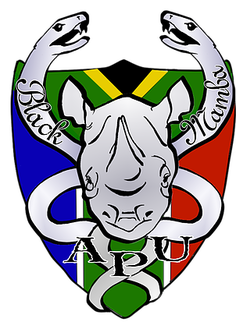
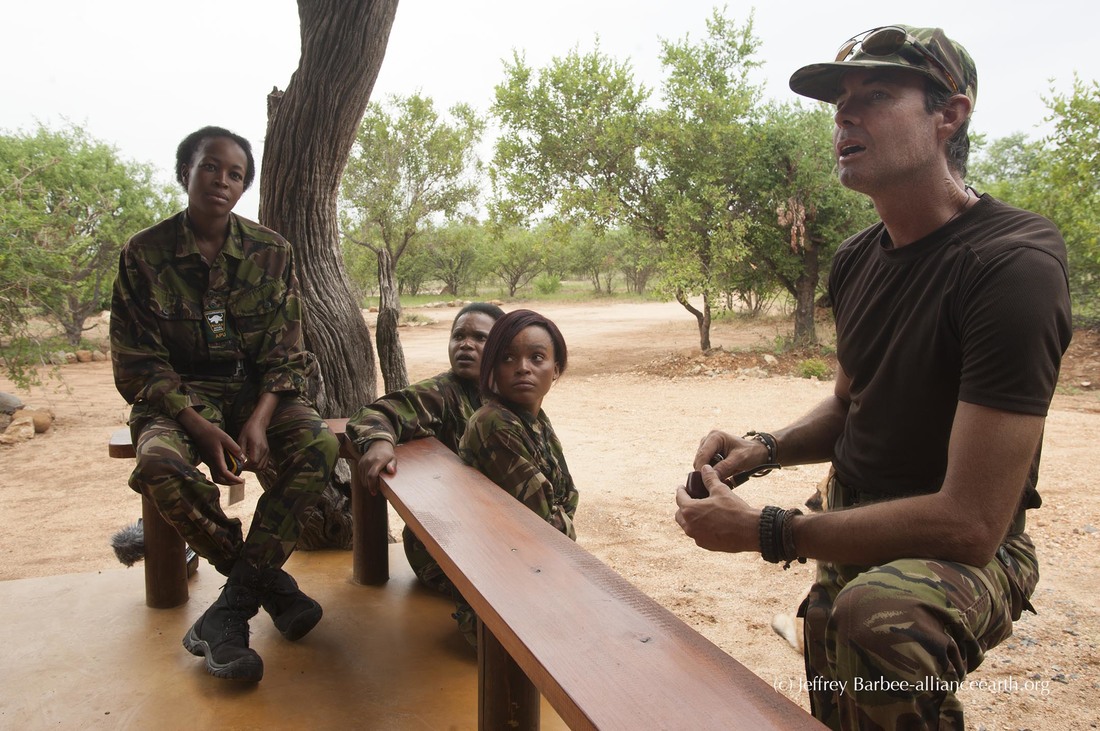
The Beginning of a New Beginning
The Black Mambas were founded by Craig Spencer, an ex-marine, ecologist and the warden of Balule Nature Reserve. I’m not exactly sure how to best describe Craig other than he’s smart, committed, relentless and even charming. He leads a very interesting life: he served his country, lived in a caravan for six years, rarely sleeps, survives off of one meal a day, can do 75 pushups in one turn, and enjoys a healthy dose of Captain Morgan’s rum at the end of a long day.
When Craig took over Balule, he knew there was a better way to fight poaching and at the same time provide opportunities to women in the local villages. He hand-picked these young women, explaining the risks and rewards of the job. He put them through a rigorous 10-week training program, including 16 straight days in the bush where they camped among the wildlife, ate freeze-dried food, hiked endless miles every day and learned life-saving survival skills –- all to prove to Craig they have what it takes to be a Black Mamba.
Despite his tough demeanor, Craig clearly has a soft underbelly and a good soul. The women respect him, look up to him and, yes, even love him. They know him to be the man who will protect them and always have their best interests at heart.
When I asked Craig how he believed this experience impacts these women emotionally, his response was inspiring.
“Remember, these are women who never thought they’d have a license or be driving a car, let alone driving a ‘man’s’ car. And not only driving a man’s car but doing so amongst some of the most threatening animals in the world. These are women who walk more than 12 miles a day on foot patrol in 100 degree+ temperatures. This is not for the faint of heart, mind or spirit. This job is for tough women, with a tough façade, but a very big heart. They use every one of their senses in their work. They live amongst nature and its wildlife, so they need all the tools God gave them to do their jobs. And they do what they do because they want to help wildlife, their families, and their communities. The blessing in all of this is that they love the work they do and, for them, it doesn’t get much better than that.”
When you ask the women how they feel, they will tell you that for the first time in their lives they feel respected. They have a sense of pride, self-worth, dignity, and they cherish their lives. They have hope for their children, friends and communities and they know that it’s because of the women they have become. They are Black Mambas.
“Compassion for life doesn’t end with a uniform. In some cases . . . it is amplified. Proactively defending the right to life risking one’s own life is simply an exemplary act of compassion.”
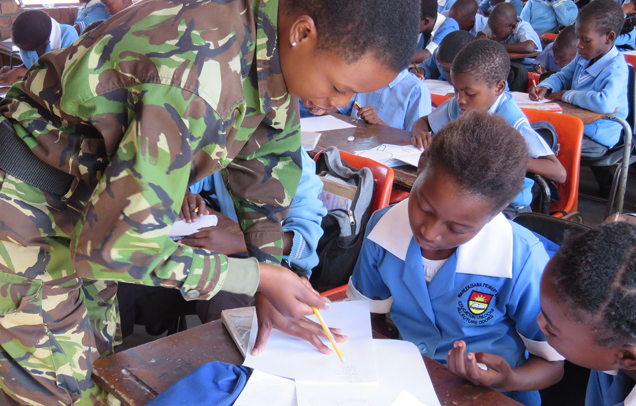
Beyond Conservation
Only 50% of the Black Mamba’s work is conservation related. They also serve as role models in their communities. These women have buying power and disposable income, so they set an example of how you can do good and do well. Their kids are well cared for, getting a good education and their lives are vastly improved because of the work their mothers are doing.
 And it’s not only their children who benefit from their work. The Black Mamba’s created “The Bush Babies Environmental Education Program” that, with the support of local communities and tribal authorities, now has 10 participating schools, reaching more than 900 children ages 12-15.
And it’s not only their children who benefit from their work. The Black Mamba’s created “The Bush Babies Environmental Education Program” that, with the support of local communities and tribal authorities, now has 10 participating schools, reaching more than 900 children ages 12-15.
The goal of this program is to create an environmentally literate community by raising awareness of what’s going on in their surrounding environment, providing a better understanding of how conservation leads to sustainable use of resources, and ultimately instilling an ethical ethos in future generations.
Go here to learn more about the Black Mambas: www.blackmambas.org
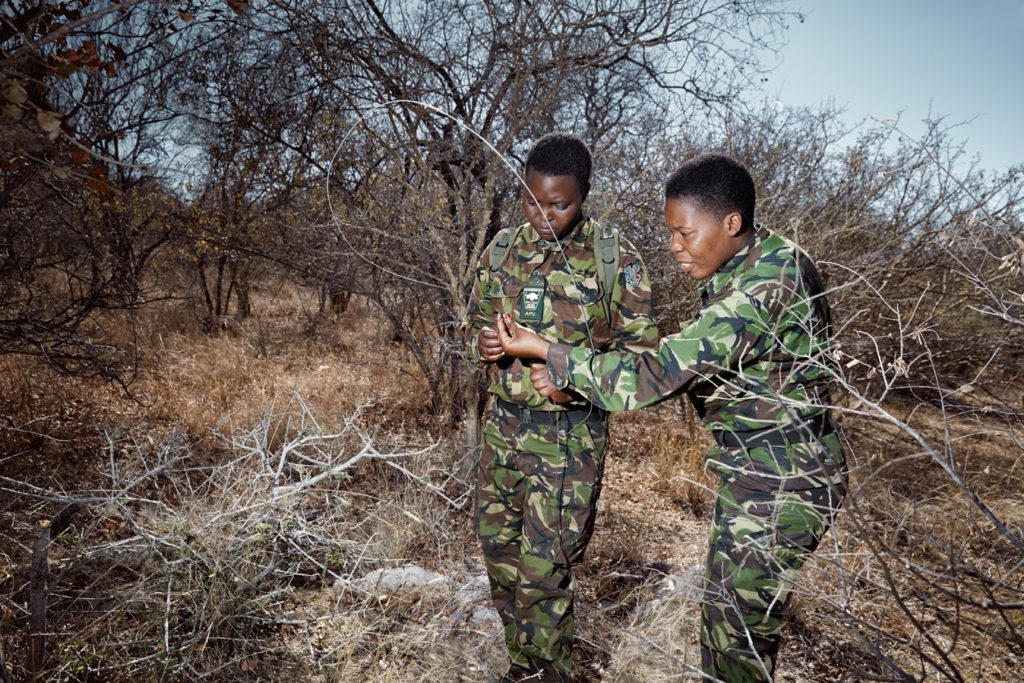
The Facts
- Since 2006, 95% of poached rhinos have come from South Africa and Zimbabwe
- From 2007 – 2014, South Africa experienced a 9000% increase in rhino poaching
- More than 5000 known rhinos were poached in South Africa between 2007 and 2015
- There are only an estimated 18,000 white and 2000 black rhino left in South Africa, which is home to 75% of Africa’s remaining rhino population
- Demand for rhino horn is being driven by Asian countries, particularly Vietnam and China, due to its use as a status symbol to display someone’s success and wealth
- It’s also used in Traditional Chinese Medicine as a treatment for nosebleeds, strokes, convulsions and fevers and is also believed to be an aphrodisiac
- If rhino poaching continues as the same rate, rhino deaths will overtake births by 2018, meaning rhinos will become extinct in the very near future
- The Western black rhino has already been declared extinct by the IUCN
- Rhino horn is currently trading at $30,000 a pound, while gold is only trading at $22,000
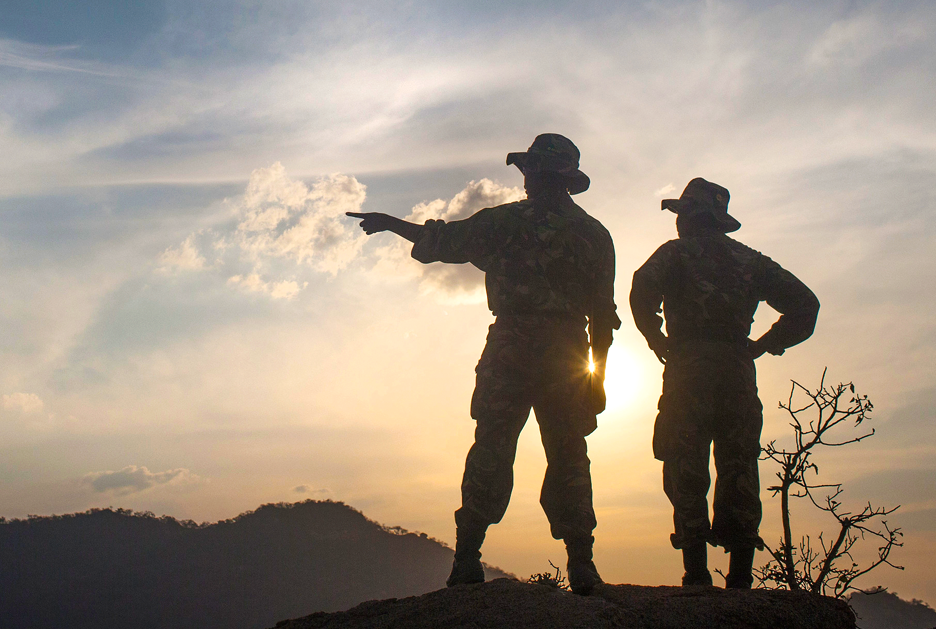
The Successes
- In 2016, overall rhino poaching figures in South Africa declined for the second year in a row (14%), indicating that increased protection and alternative strategies are paying off
- Since deployment of the Black Mambas in Balule Nature Reserve in May 2014…
- snaring has decreased by 99% within the boundaries of the reserve and 89% including all areas of operation
- the reserve has gone 11 months at a time without losing one rhino to poaching
- 9 poachers have been arrested and convicted
- 29 poachers’ camps and 7 bush meat kitchens have been identified and destroyed
- The Black Mambas were awarded the 2017 Silver Eco-Warrior award, which recognizes those whose actions have defended, protected or prevented damage to the Earth’s life forms, eco-systems and natural resources
- In 2015 the Black Mambas received the “Best Conservation Practitioner of the Year – Rhino Conservation” award
-
The Black Mambas were the recipients of the 2017 “The Champions of the Earth” award, the United Nations highest environmental honor recognizing visionary people and organizations around the world that exemplify leadership and advocate action on sustainable development, climate change and a life of dignity for all.
“Community-led initiatives are crucial to combatting the illegal wildlife trade and the Black Mambas highlight the importance and effectiveness of local knowledge and commitment. Their many successes are a result of their impressive courage and determination to make a difference in their community. The Black Mambas are an inspiration not only locally, but across the world to all those working to eliminate the scourge of the illegal wildlife trade. While their work contributes mostly towards ecosystem preservation and halting biodiversity loss, it also exemplifies the action-driven solutions needed to achieve all of the sustainable development goals. With every rhino saved, the Black Mambas demonstrate that action on a local level is critical to achieving global sustainability and equity.”
– UNEP Executive Director, Achim Steiner
The Documentary
We will produce a :30 to :40 short documentary featuring the Black Mambas. We began with a reconnaissance trip to Balule Nature Reserve in mid-December conducting interviews, identifying key characters and storylines, and capturing footage to be cut into a trailer, which will be premiered at our upcoming fundraising events.
Upon completion, the film will be entered into several major film festivals, including but not limited to Sundance, Toronto, Napa, Tribeca and SXSW. We will also seek to sell rights to the docu-series to a major distributor such as NetFlix, Amazon, Discovery, Nat Geo, PBS or HBO.
Fundraising Goal: $200,000 – All contributed funds will be tax deductible and should be made payable to Amahle Ventures, NPG.
For more information, contact Hope Schultz @ +1-312-953-1959 or hope@amahleglobal.com
The Team
Hope Schultz, Executive Producer
Hope is the creator of the Women in the Wilderness series. She is the CEO of Amahle Ventures NPG, an organization matching investors with philanthropic and sustainable investment opportunities that promise financial, social and emotional returns. Hope has a history of working with women, helping them find a path to empowerment so they can in turn empower those around them. She has a diverse background including a lengthy career in the advertising industry; serving as the chief marketing officer of a non-profit focused on micro-lending to women in developing countries; an entrepreneur in the pet space; and the founder of Amahle Ventures. An avid photographer, Hope has been traveling to Africa for both business and pleasure for more than 10 years. She is thrilled to be able to spearhead a project that allows her to combine her passion for animals, support of women, love of storytelling and desire to spend as much time as possible in her favorite place on earth.
Anjali Nayar, Director
Anjali is a Canadian documentary filmmaker, multimedia storyteller and journalist, based between Nairobi and Montreal. Her feature directorial debut was “Gun Runners” (2016), about two Kenyan warriors who trade in their AK-47s for marathon running. Anjali also directed “Logs of War,” a cross-platform documentary about activists using smart phones to expose land grabs and corruption in West Africa and “Just A Band”, a fractionally-fictional documentary about an African-electric pop group that wants to go to space. Anjali’s most recent film profiles Silas Siakor, a Liberian environmental activist who puts his heart and soul into fighting for community rights and exposing corruption, while crusading against illegal logging in Liberia. “Silas,” executive produced by Leonardo DeCaprio, debuted at the Toronto International Film Festival in September 2017.
Joan Poggio, Co-Director & Cinematographer
Joan (pronounced JoAnn) is a world class cinematographer and editor known for his work on documentaries dealing with the ivory and rhino horn crisis such as “Gambling on Extinction” and “The Last Animals”; and feature films “Ni Sisi,” dealing with the topic of Kenyan post-election violence, and “Watatu” on the radicalization of Muslim youth in Mombasa. For four years he shot “Gun Runners” a film about two warriors from Northern Kenya who trade their AK-47s for running shoes and the Kenyan dream of marathon running. In 2017 he was nominated for Best Cinematography in a Feature Length Documentary for “Gun Runners” by the Canadian Academy of Cinema. His most recent cinematography work on “Silas”, a documentary about a tireless crusader Silas Siakor fighting illegal logging, recently debuted at the Toronto International Film Festival.
View his reel here: www.vimeopro.com/joanpoggio
Molly Schaaf, Producer
Molly is a seasoned producer with 20 years of production experience. She has produced on-budget productions around the world, with crews ranging from 75 to three people. Molly is adept at conducting interviews and knows how to let the story evolve naturally by listening intently and connecting with people with a true sense of compassion. She has spent extensive time in South Africa in both the city and the bush. Molly is passionate about travel, the outdoors and “giving back”, and feels at home in SA. She is proudly part of this documentary production.
Louiza Wanjiku, Editor
Louiza was born and raised in Nairobi. In 2006 she graduated from Mohamed Amin Foundation with an advance diploma in Production and Post Production for Television and Film. Since then she has embarked on various projects from adverts, documentaries, gameshows, short films, and television series. Her most recent feature film, “Kati Kati” won the prize of the International Federation of Film Critics (FIPRESCI) and “Maria,” a short film she co-directed and edited, won the Sembene Ousmane award at the Zanzibar Film Festival.
For more information contact:
Hope Schultz
hope@amahleglobal.com
+1-312-953-1959